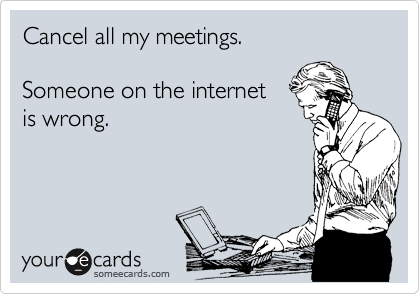Note: I received more likes and comments on my last blog post about clarity than any other so far. So I thought I’d unpack the topic a bit more. I hope that one of these speaks to you so that you can get unstuck and keep moving forward.
Killer #1 - Looking for a Silver Bullet. This killer comes from thinking that clarity on your life purpose will answer every unsolved issue in your life. It won’t. To be sure, clarity does help to “make sense” of life and brings focus and energy, but we’re talking about an overarching concept here. Clarity doesn’t need to address every nuanced detail of your talents, history, and desires. In fact the simpler it is, the more powerful its effect.
The antidote? Lower your expectations and learn to dance with the mysteries of life. Look for the one thing that you really want to do, that uses your favorite talents, and propels you to make a real difference in the world. Everything else is window dressing.
Killer #2 - Keeping your options open. Are you hedging your bets? Love to have a backup plan? Honestly, that’s actually just the fear of failure. But real clarity requires me to pick a path and say “no” to other options. In fact, that’s a big part of its power - it clears away the clutter. No more wandering around trying to find the perfect fit. Just make up your mind and go for it.
You might be under this killer’s influence if your life purpose statement overly broad. Far too many people tell me their purpose is “To help people wherever I can,” or “To make the world a better place.” If that’s your situation, you’ll need to do some deeper soul-searching and get more specific.
Killer #3 - Expecting a lightning bolt to accompany it, or the Hallelujah Chorus, or goosebumps. Fill in your expected epiphany signal here _______. Clarity on your life purpose is so meaningful that when it shows up you may think it will arrive with fanfare.
But here’s the truth - because you live with yourself every day, and your exceptional talents come so easily to you, the tendency is to discount them as ordinary. In fact, chances are very good that in the past month someone in your life complimented you on a key part of your life purpose, but it barely registered. You may have even thought, “Thank you, Captain Obvious.” And your search continues for something else “out there.”
Here's a helpful hack - be on the alert for unsolicited compliments and write them down. They’re a big clue to the strengths others see in you that you might be missing.
Hyper-hack - Speed up the process by proactively soliciting feedback from your friends and family. You could try any one of these or make up your own:
- What do you think are my top 5 strengths?
- What’s the main impact that I bring to the world?
- What do I seem most passionate about?
Killer #4 - Thinking that it’s locked in stone. This one says, “How can I say with any kind of certainty what I’ll be doing twenty years from now? My interests have already changed multiple times so far in my life, so they’re bound to change again.”
The best way to deal with this one is to just accept that your understanding of your life purpose will change over time. In fact, if it doesn’t change then you’re not growing as a person. But that doesn’t get you off the hook of needing a guiding compass now.
Try setting your sights only on the next three years and say, “To the best of my knowledge about the world and myself at this point in time, my purpose in life is _________.” Then date it, and revisit it in 3-5 years.
Killer #5 - Lack of self-awareness, is one of the most common hindrances. Do you know how you’re wired? Are you in touch with your passions and desires? When do you feel like you’re most alive? This is where skilled coaching can make a big difference. A certified life coach is trained to help you quickly gain clarity through assessment tools and powerful questions, and has a trained ear to be a sounding board.
One of the greatest joys I have is helping my clients sort through the clutter in their minds to get in touch with their calling. Then they can see their past life events differently, which transforms their outlook for the future. Powerful!
Did I miss something? What’s keeping you from zeroing in on your calling and being able to state it with confidence? Let’s talk.














